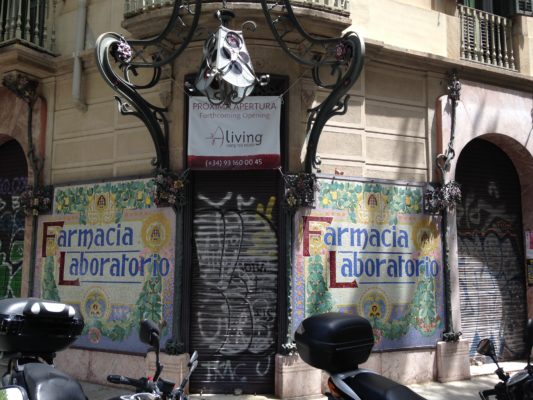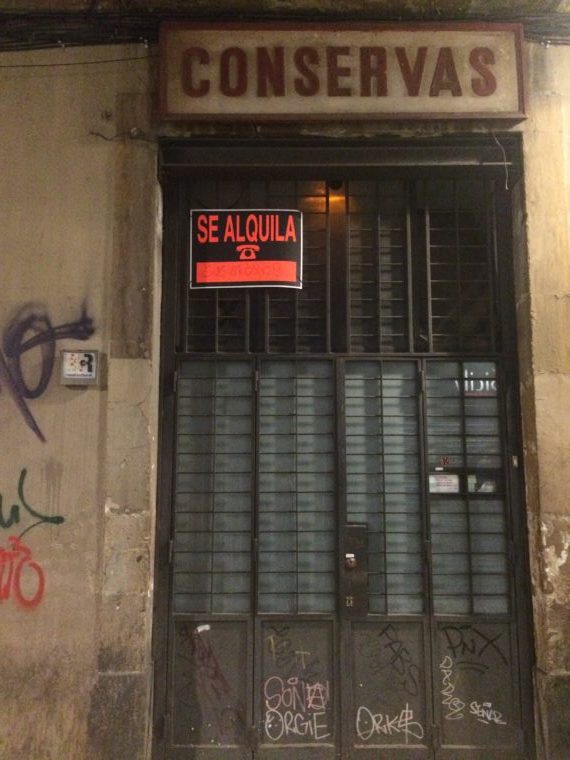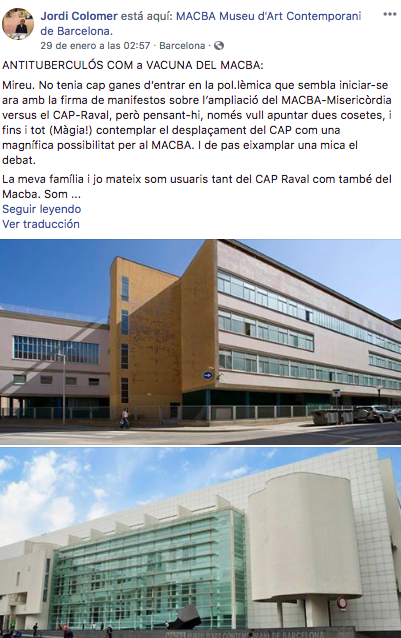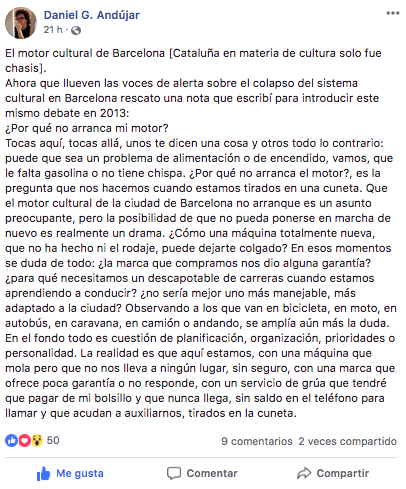Search
To search for an exact match, type the word or phrase you want in quotation marks.
A*DESK has been offering since 2002 contents about criticism and contemporary art. A*DESK has become consolidated thanks to all those who have believed in the project, all those who have followed us, debating, participating and collaborating. Many people have collaborated with A*DESK, and continue to do so. Their efforts, knowledge and belief in the project are what make it grow internationally. At A*DESK we have also generated work for over one hundred professionals in culture, from small collaborations with reviews and classes, to more prolonged and intense collaborations.
At A*DESK we believe in the need for free and universal access to culture and knowledge. We want to carry on being independent, remaining open to more ideas and opinions. If you believe in A*DESK, we need your backing to be able to continue. You can now participate in the project by supporting it. You can choose how much you want to contribute to the project.
You can decide how much you want to bring to the project.

March draws to a close and we approach the month of April that promises to be turbulent, as the countdown of the political struggle for Barcelona has begun. The multiple electoral fronts that Spain is facing seem to be another sign of the dilemma of our age. In this context, the impulse of this issue of A*desk has been to visualise and verbalise processes and situations that are present, and yet are either displaced or ignored. The article penned by Lucía Egaña and Jara Rocha describes the practices of cultural organisations, where we often find ourselves subject to abusive powers that impose and promote harmful relationships.
‘These bad practices are often sustained by subjects characterised by a fair degree of institutional legitimacy (more than yours, in any event), and at other times they are produced by force of habit: bad practices form a part of the most mediocre of landscapes.’
These are psychopolitical exercises of our good old neo-liberals, who use labour precariousness as a tool for adding further pressure to self-exploitation. Subordination, submissiveness and servility for the fear of losing the little we have left. This condition is transferred to the city as a whole, and constructs arguments for resigning ourselves to the global processes of gentrification and deterioration of the ecological and the social. Housing, insecurity, mass tourism, loss of uniqueness, population displacement, increase in the cost of living and inequality are some of the evils lurking in the city. Hence the drawings by Alba Feito.

The city of Barcelona divested of its peculiarities, both material and experiential, is halfway between a caricature of itself, a theme park and a shopping mall in a large airport in summer. Tourists and residents oscillate between experiences of the global (Uber, Airbnb, brunches, food trucks, co-workings, street markets and festivals) and a stylised authenticity of the local (apéritif bars, the districts of Gràcia and Sant Antoni, parties held on rooftop terraces, floors with encaustic cement tiles, traditional festivities and the Mediterranean Sea). Unexpected moments, the traces of time and the persistence of wicked Barcelona can be glimpsed in the photographs by Michael Hart.
We are often told that Barcelona died from success. That we lost control of the city and that, as happened throughout Spain, crazy years of speculation, squandering and corruption gave way to the toughest moments of the last financial crisis in which we were forced to sell ourselves out to the highest bidder. Carlos Delclós’s article helps us refocus the debate on the model and the effect of the city as an international attraction and as an agent of metropolitan influence. There is an expanded Barcelona that we should address – that we are addressing – to ensure it isn’t left to the ploys of scavengers. And we are doing so with a fair measure of local utopianism (horizontality, anti-normativeness, urban allotments) and efficient acceleration (transport, environment, sustainable economy), avoiding metaphors that are determinant rather than aspirational. Suffice it to compare L’Hospitalet to Brooklyn, Barcelona to Amsterdam and Catalonia to Massachusetts.
And last but not least, contemporary art. Caterina Almirall and Carolina Jiménez present us with Les escenes, a celebration of the twenty-fifth anniversary of the opening of La Capella exhibition space. Their article gives us a glimpse of what takes place backstage.
The numerous crises we have suffered over the past decade have been overwhelmingly serious, despite having been treated lightly by constant changes in the arts policies of Barcelona City Council and the Catalan government. The situation is well known and obeys several factors:

Although contemporary art has become the language of neo-liberal globalisation, in its speculative-commercial function and its gentrifying force Barcelona has several additional difficulties that paralyse, demoralise, distort and torment all those who strive to make a living. The political class behaves towards the art world like a dog in the manger — selfishly refusing to let others enjoy benefits for which it has no use. It doesn’t fulfil its mission, nor does it allow the existence of other operative systems. The hardships of bureaucratic structures (and personalistic hardships) are killing the sector out of pure boredom, and emphasise rather than solve the key problems of a system that is, in itself, difficult to calibrate. How can we trace the evolution of an idea that can be made up of cognitive, creative or sensory inputs present in art and that can end up feeding another sector? How can we detect the sources that lead us towards an active, critical and imaginative citizenship?


In a parallel universe there is a Barcelona in which Metrònom, Sala Montcada, Espai Poblenou and even La Cúpula Venus (cabaret and performance space) remain open. A city where the hinge between the Umbracle (orangery) and the former Palace of Fine Arts forms a transdiciplinary organism dedicated to the Anthropocene and where Santa Mònica, the Canodòm (former greyhound race track) and Fabra i Coats (former textile factory) are three stable independent art centres financed by public and private partners and run by figures respected in the art world. Where self-managed spaces are not the exception, and where the creative potential of so many people is taken advantage of in schools, universities, companies and research centres. A Barcelona where music bars aren’t always at risk of being closed, where the theatre isn’t a bourgeois art form to be enjoyed on a Sunday afternoon and where museums open in the evenings. Vinçon is still open, and exhibitions are still staged in Ramon Casas’s atelier; where the interior Sert designed for Joan Prats art gallery remains intact, and Canuda and Áncora y Delfín bookshops still sell books every day. This isn’t melancholy — it’s simply a need to be something other than Barcelona World or any other fantasy filtered through the minds of our politicians. Single-crop farming was never beneficial for a healthy soil.

Xavier Acarín is fascinated with experience as the driving force of contemporary culture. He has worked in art centres and cultural organizations both in Barcelona and New York, focussing in particular on performance and installation.
"A desk is a dangerous place from which to watch the world" (John Le Carré)